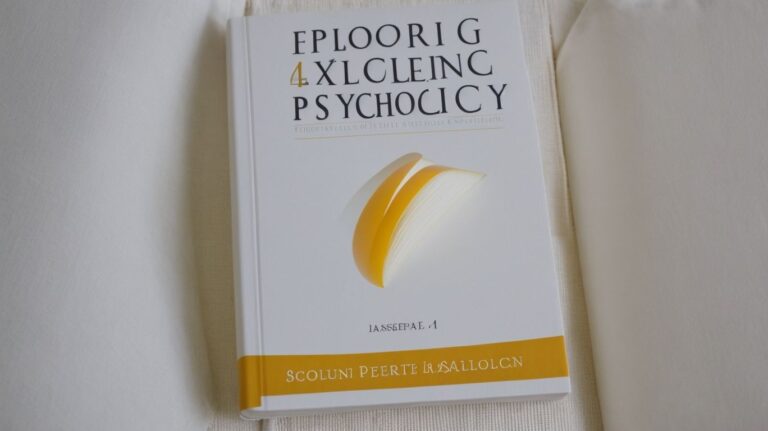Humanistic theories have significantly shaped the field of psychology, offering a unique approach that focuses on the individual and their subjective experiences. Key figures such as Abraham Maslow, Carl Rogers, and Rollo May have played a pivotal role in developing these theories, emphasizing concepts like self-actualization and personal growth.
This article explores the main principles of humanistic theories, their impact on psychology, and the criticisms that have been raised against them. Join us as we delve into the world of humanistic psychology and its influence on our understanding of human nature.
Contents
- 1 What Are Humanistic Theories?
- 2 Who Are the Key Figures in Humanistic Psychology?
- 3 What Are the Main Principles of Humanistic Theories?
- 4 How Have Humanistic Theories Impacted Psychology?
- 5 What Criticisms Have Been Made Against Humanistic Theories?
- 6 Frequently Asked Questions
- 6.1 What is the impact of humanistic theories on psychology?
- 6.2 How have humanistic theories influenced the field of psychology?
- 6.3 What are the key principles of humanistic theories?
- 6.4 How do humanistic theories view mental health?
- 6.5 What criticisms have been raised against humanistic theories?
- 6.6 How can the application of humanistic theories benefit individuals?
What Are Humanistic Theories?
Humanistic theories in psychology focus on the individual’s potential for growth and self-actualization, emphasizing the subjective experiences and unique qualities that shape human behavior and well-being.
One of the key principles of humanistic psychology is the belief in the inherent goodness and positive nature of individuals, suggesting that given the right conditions, people will naturally strive to reach their full potential. This contrasts with other psychological perspectives that may focus more on pathology or dysfunction. Humanistic theories also stress the importance of conscious awareness and the ability to make choices that lead to personal fulfillment and authentic living. By acknowledging the influence of free will and the capacity for self-improvement, humanistic psychology promotes a sense of give the power toment and accountability in individuals as they navigate life’s challenges.
What Is the Humanistic Approach to Psychology?
The humanistic approach to psychology, pioneered by prominent figures like Carl Rogers and Abraham Maslow, centers on the belief that individuals have an inherent drive towards self-actualization and personal fulfillment, emphasizing the role of empathy, authenticity, and positive regard in therapeutic relationships.
In humanistic psychology, the focus is on the whole person, recognizing the importance of subjective experiences and individual uniqueness. Empathy plays a crucial role, as therapists strive to understand and connect with the client’s internal world, promoting growth and healing through genuine understanding.
Authenticity is another key principle, encouraging both the therapist and the individual to be genuine and transparent in their interactions, fostering trust and openness in the therapeutic process.
Who Are the Key Figures in Humanistic Psychology?
Key figures in humanistic psychology, including Carl Rogers, Abraham Maslow, and Rollo May, have significantly contributed to the development of humanistic theories and therapeutic practices, shaping the understanding of individual well-being and personal growth.
Carl Rogers, known for his person-centered approach, emphasized the importance of empathy and unconditional positive regard in therapy, believing in the innate drive towards self-actualization. Abraham Maslow, through his hierarchy of needs theory, highlighted the stages of human motivation and the pursuit of self-fulfillment. Rollo May, a pioneer in existential psychology, focused on the search for meaning and authenticity in one’s existence, blending philosophical concepts with psychological insights.
Abraham Maslow
Abraham Maslow, known for his hierarchy of needs theory, emphasized the importance of fulfilling basic physiological and safety needs before achieving self-actualization, a state where individuals strive for personal growth and fulfillment beyond mere survival.
Maslow’s concept of self-actualization posits that when individuals have met their lower-level needs like food, water, and safety, they can focus on reaching their full potential and becoming the best version of themselves.
He believed that each person has an innate desire to grow, improve, and achieve their goals, contributing positively to society.
This holistic perspective on human well-being revolutionized psychology by shifting the focus from pathology to personal growth and self-fulfillment, inspiring countless individuals to pursue their highest aspirations.
Carl Rogers
Carl Rogers, the pioneer of client-centered therapy, emphasized the importance of empathy, unconditional positive regard, and authenticity in therapeutic relationships, fostering an environment that promotes individual growth and self-exploration.
In his approach to counseling and therapy, Rogers believed that individuals possess the capacity for self-awareness and self-direction, thereby driving their own growth towards fulfillment. By providing a non-judgmental and empathetic space for clients to explore their thoughts and feelings, he facilitated the process of self-discovery and personal understanding. This client-centered approach, centered around the belief in the inherent potential for positive change within individuals, revolutionized the field of psychology by shifting the focus from pathology to personal growth.
Rollo May
Rollo May, a key figure in humanistic psychology, emphasized the significance of an existential lifestyle marked by freedom of choice, personal responsibility, and the pursuit of meaning and authenticity in one’s life.
May’s exploration of existential themes resonated with individuals grappling with questions of personal identity and their place in the world. His works delved into the complexities of human existence, highlighting the interplay between individual agency and external influences in shaping one’s experience. He believed that embracing freedom and taking responsibility for one’s choices was essential for personal growth and fulfillment.
In his view, confronting the existential challenges of life, such as anxiety and alienation, could lead to a deeper understanding of oneself and the world. May’s emphasis on the search for meaning encouraged individuals to engage in introspection and reflection to discover their authentic selves.
What Are the Main Principles of Humanistic Theories?
The main principles of humanistic theories revolve around concepts like self-actualization, self-concept, and personal growth, emphasizing the holistic understanding of individuals, their unique experiences, and the pursuit of fulfillment and well-being.
Self-actualization, a key component of humanistic psychology, refers to the realization of one’s full potential and the desire for personal growth and improvement. Self-concept, on the other hand, involves how individuals perceive themselves, their abilities, and their roles in society. This interplay between self-actualization and self-concept plays a crucial role in shaping an individual’s sense of identity and purpose.
Humanistic theories underscore the importance of personal growth as a continuous process of self-discovery and development. It emphasizes the innate drive within individuals to strive for authenticity and fulfillment in their lives. By focusing on themes such as autonomy, creativity, and positive relationships, humanistic psychology encourages individuals to tap into their inner potential and lead meaningful lives.
Self-Actualization
Self-actualization, a concept popularized by Abraham Maslow, refers to the realization of one’s full potential, leading to personal fulfillment, creativity, and the pursuit of the ‘good life’ characterized by authenticity and meaningful experiences.
In Maslow’s humanistic psychology, self-actualization is considered the pinnacle of psychological development, representing the highest level of personal growth and realization.
According to Maslow, individuals who reach this stage exhibit key characteristics such as autonomy, spontaneity, a strong sense of purpose, and a deep connection with others and the world around them.
Self-actualized individuals are driven by the desire to continuously improve themselves, seek out new challenges, and embrace opportunities for personal growth and fulfillment.
Self-Concept
Self-concept, the perception individuals have of themselves, influences their behaviors, beliefs, and interactions with the world, shaping their sense of identity, values, and personal awareness.
Humanistic theories emphasize the role of self-concept in understanding human behavior and personal growth. According to these theories, how individuals view themselves affects their self-esteem, self-worth, and overall well-being.
Cultivating a positive self-concept can lead to increased confidence, resilience, and emotional intelligence. Self-awareness plays a crucial role in fostering empathy, authentic relationships, and personal development. By exploring and refining their self-concept, individuals can enhance their ability to navigate life’s challenges and pursue their aspirations.
Personal Growth
Personal growth in humanistic theories represents the ongoing process of realizing one’s potential, seeking fulfillment, and achieving a state of well-being through experiences that promote individual development and self-discovery.
In the context of humanistic psychology, the emphasis is on the whole person and their innate drive towards growth and actualization. This journey involves a deep exploration of one’s values, beliefs, and motivations, leading to increased self-awareness and a stronger connection with one’s authentic self.
By engaging in activities that challenge existing limitations and foster learning, individuals can expand their horizons, cultivate resilience, and enhance their emotional intelligence. This continuous evolution not only contributes to personal satisfaction but also enables individuals to navigate life’s challenges with greater confidence and adaptability.
How Have Humanistic Theories Impacted Psychology?
Humanistic theories have significantly impacted psychology by shifting the focus from deterministic views of behavior to the subjective experiences of individuals, influencing therapeutic approaches that prioritize personal growth, emotional well-being, and holistic perspectives on mental health.
One of the central tenets of humanistic psychology is the belief in the inherent goodness and potential for growth within people, contrasting with the pathology-focused approaches of earlier schools of thought.
Carl Rogers, a key figure in humanistic psychology, emphasized the importance of empathy, unconditional positive regard, and genuineness in therapy, paving the way for client-centered counseling methods that prioritize the individual’s subjective experience.
This approach focuses on creating a supportive environment that encourages self-exploration, self-acceptance, and personal give the power toment.
Shift From Behaviorism and Psychoanalysis
Humanistic theories prompted a shift in psychology away from behaviorism and psychoanalysis towards a more human-centered approach that values individual experiences, emotions, and the pursuit of mental health and well-being.
This shift marked a significant departure from the previous dominant paradigms in psychology, emphasizing the uniqueness of each person’s journey and the importance of self-actualization.
**Humanistic** psychologists like Carl Rogers and Abraham Maslow played pivotal roles in shaping this new perspective, focusing on personal growth, intrinsic motivation, and the fulfillment of human potential.
Unlike behaviorism, which concentrated on observable behaviors, and psychoanalysis, which delved into the unconscious mind, humanistic psychology acknowledges conscious experiences and the subjective reality of individuals.
Emphasis on Individual Experience
Humanistic theories emphasize the importance of the individual’s unique perspective, holistic well-being, and potential for personal fulfillment, recognizing each person’s intrinsic value and the significance of their subjective experiences in shaping behavior and well-being.
By focusing on the whole person, humanistic theories look beyond surface behaviors to delve into underlying motivations and beliefs, striving to understand the complexities that influence human development and growth. This approach values self-awareness, introspection, and the exploration of emotions, allowing individuals to tap into their inner resources and unlock their full potential.
Self-actualization serves as a core concept in humanistic psychology, emphasizing the journey towards realizing one’s authentic self and living in accordance with inner values and aspirations. Through fostering a sense of agency and promoting personal responsibility, humanistic theories give the power to individuals to actively engage in their own growth, seeking to lead fulfilling and meaningful lives.
Influence on Therapy and Counseling Approaches
Humanistic theories have profoundly influenced therapy and counseling approaches by emphasizing the importance of therapeutic relationships built on empathy, active listening, authenticity, and unconditional positive regard, fostering an environment that supports clients’ self-exploration and personal growth.
Central to humanistic approaches is the belief that individuals have the capacity for self-awareness and self-directed change. Therapists practicing these principles often prioritize creating a safe space for clients to express their thoughts and emotions without judgment. By cultivating a strong therapeutic alliance based on trust and understanding, clients can feel give the power toed to explore their innermost feelings and work towards overcoming personal obstacles. The emphasis on the client’s subjective experience and inherent potential drives the focus towards personal growth and self-actualization within the therapeutic process.
Impact on Education and Leadership
Humanistic theories have extended their influence beyond therapy to education and leadership contexts, emphasizing environments that support personal growth, respectful relationships, and open communication, nurturing individuals’ potential and fostering positive outcomes.
In educational settings, the principles derived from these humanistic theories have revolutionized teaching methods, shifting the focus from traditional rote learning to a more student-centered approach. This approach emphasizes the importance of understanding each student’s unique needs and motivations, creating a supportive environment where they can thrive.
Similarly, in leadership practices, embracing humanistic theories has led to a shift in management styles towards a more empathetic and participative approach. Leaders are now encouraged to build respectful relationships with their team members, fostering collaboration and trust.
What Criticisms Have Been Made Against Humanistic Theories?
Critics of humanistic theories have raised concerns about the lack of empirical evidence supporting humanistic principles, the potential overemphasis on positive aspects of human nature, and the limited applicability of these theories to certain mental health issues that may require more structured interventions.
One key criticism is rooted in the contention that the humanistic approach lacks a solid empirical foundation, with skeptics arguing that subjective experiences and personal growth cannot be reliably measured or quantified.
Some detractors highlight the risk of overlooking the darker aspects of human behavior and the complexities of psychological distress by focusing primarily on optimism and self-actualization.
In terms of clinical applications, critics question the effectiveness of humanistic therapies for conditions like severe depression or psychosis, where structured interventions such as Cognitive Behavioral Therapy may be more suitable.
Lack of Empirical Evidence
One of the main criticisms of humanistic theories is the lack of empirical evidence to validate the phenomenological and consciousness-focused aspects of humanistic psychology, raising questions about the scientific rigor and validity of these theoretical perspectives.
In the realm of humanistic psychology, the challenge lies in translating subjective experiences and consciousness into measurable data that can be empirically tested and replicated. Critics argue that the reliance on self-reported accounts and introspective methods in this field may lead to biases and difficulties in establishing objective evidence.
The inherently individualistic nature of humanistic approaches makes it complex to apply standardized research methodologies, which are crucial for ensuring the reliability and generalizability of study findings.
Overemphasis on Positive Aspects of Human Nature
Critics argue that humanistic theories may overemphasize the positive aspects of human nature, potentially neglecting the darker aspects of human experience such as existential responsibility, the search for meaning, and the complexities of human consciousness.
Although humanism celebrates human potential and emphasizes self-actualization, opponents suggest that this optimistic view might not adequately address the existential dilemmas individuals face. Existential responsibility urges individuals to confront the uncertainty and freedom inherent in existence, a concept often sidelined in overly idealistic perspectives. Critics maintain that an excessive focus on positivity could lead to a superficial understanding of human experiences, minimizing the significance of grappling with the complexities of our consciousness and the profound quest for meaning.
Limited Applicability to Certain Mental Health Issues
Some critics argue that humanistic theories have limited applicability to certain mental health issues that may require structured interventions, highlighting the challenges of translating concepts like self-awareness, personal choice, and intrinsic values to diverse clinical settings and populations.
These critics suggest that while humanistic approaches emphasize individual experience and autonomy, they may not always provide the necessary framework for addressing complex psychiatric conditions such as schizophrenia or severe personality disorders. The emphasis on self-exploration and personal growth, although valuable in many therapeutic contexts, might not adequately address the intricate needs of individuals facing acute mental health crises.
The application of humanistic principles can also be criticized for lacking the specific techniques and strategies required to address specific symptoms or behaviors that are prevalent in conditions such as anxiety disorders or PTSD.
Frequently Asked Questions
What is the impact of humanistic theories on psychology?
Humanistic theories have had a significant impact on psychology by promoting a more holistic understanding of human behavior and emphasizing the importance of individual experience and personal growth.
How have humanistic theories influenced the field of psychology?
Humanistic theories have challenged traditional approaches to psychology and led to the development of new techniques and therapies, such as person-centered therapy, that focus on the individual’s unique experiences and needs.
What are the key principles of humanistic theories?
The key principles of humanistic theories include the belief in the inherent goodness and potential for growth in every individual, the importance of self-actualization, and the value of human experience and subjective perception.
How do humanistic theories view mental health?
Humanistic theories view mental health as a state of self-actualization, where individuals are able to fulfill their potential and lead fulfilling lives. They also emphasize the importance of self-awareness, personal growth, and self-acceptance for maintaining mental well-being.
What criticisms have been raised against humanistic theories?
Some critics argue that humanistic theories are too subjective and lack scientific evidence to support their claims. Others contend that these theories place too much emphasis on the individual and neglect social and cultural influences on behavior.
How can the application of humanistic theories benefit individuals?
By incorporating the principles of humanistic theories into therapy and personal development, individuals can gain a deeper understanding of themselves, improve their self-esteem and self-awareness, and work towards reaching their full potential.



